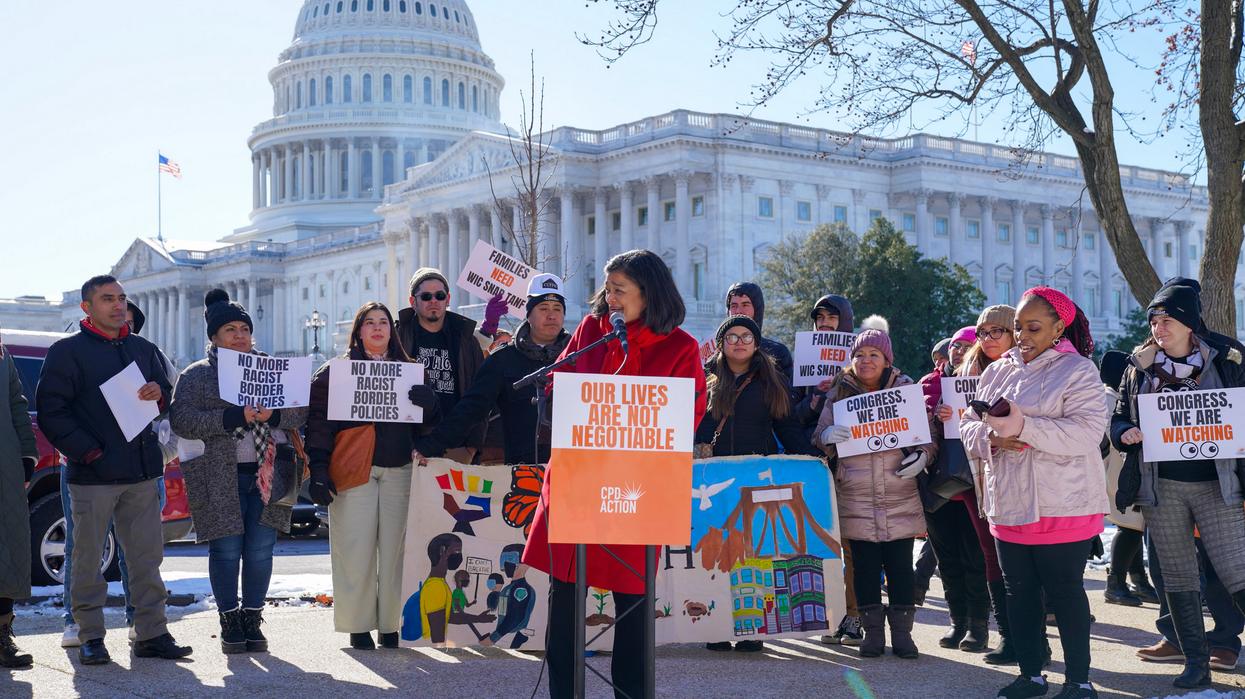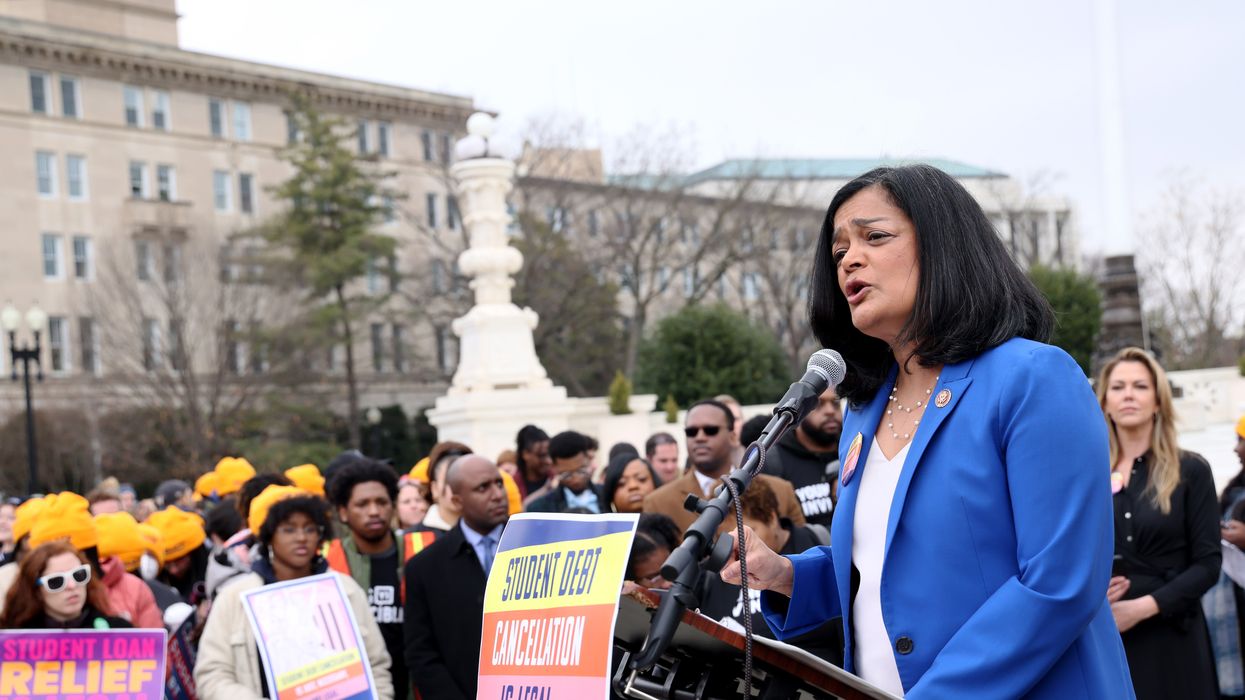2 Million Children, Parents Set to Lose Food Aid Unless Congress Acts Now
"Republicans are refusing to fully fund the programs families desperately need, and now 2 million new parents, babies, and children could pay the price," warned one advocate.
As U.S. lawmakers finalize this year's government funding bills amid yet another shutdown threat, progressive advocates on Wednesday warned that Congress must act immediately to ensure the uninterrupted flow of food aid from a key program on which millions of children and their parents depend.
Advocates including U.S. Congressional Progressive Caucus Chair Pramila Jayapal (D-Wash.) and Rep. Cori Bush (D-Mo.) rallied outside the U.S. Capitol in Washington, D.C. Wednesday to implore lawmakers to pass a clean budget without cuts to programs like the Special Supplemental Nutrition Program for Women, Infants, and Children (WIC), Temporary Assistance for Needy Families (TANF), and Supplemental Nutritional Assistance Program (SNAP).
"Programs like WIC, TANF, and SNAP are essential tools for ending poverty and hunger. But instead of helping Democrats expand these programs and deliver for working families, Republicans are constantly working to CUT them in favor of tax breaks for the wealthy," Jayapal said on social media. "It's shameful."
Rep. Lori Trahan (D-Mass.)
warned that "Republicans are forcing us to the brink of a shutdown for the third time in four months," and that "shutdowns don't affect the donor class, but they're devastating for service members who need their paychecks, moms who need WIC to feed their kids, and families trying to heat their homes."
The group ParentsTogether Action specifically warned of threats to WIC, which "ensures access to fresh and healthy food and formula, breastfeeding support, and healthcare referrals for pregnant and postpartum parents and their kids up to age 5."
The group stressed:
It is critical that [congressional lawmakers] meet President [Joe] Biden's emergency request to fully fund WIC, and honor a long-standing commitment to ensure WIC is able to serve every low-income family who seeks assistance. If they fail to do so by January 19, the program will face a roughly $1 billion shortfall in 2024, which would require states to reduce WIC participation. Up to 2 million eligible young children and pregnant and postpartum adults with low incomes could be turned away by September, resulting in wait lists for the first time in decades.
According to the U.S. Department of Agriculture (USDA)—which runs WIC via the Food and Nutrition Service—the program served approximately 6.3 million parents and children each month during fiscal year 2022, including nearly 40% of all infants in the United States. More than half of all U.S. newborns are eligible for WIC benefits.
A 2023 ParentsTogether Action survey revealed that:
- 64% of WIC recipients would have been unable to afford necessary formula to feed their infants without the program;
- 52% of recipients would have been unable to afford enough food for themselves;
- 75% of beneficiaries said the program helped them afford nutritious foods that they would not have otherwise been able to purchase; and
- 35% of those receiving benefits said they would not have had the support necessary to breastfeed their children.
As Stacie Sanchez Hare, director of No Kid Hungry Texas, argued Wednesday in an an opinion piece in The San Antonio Express News, the threat to WIC "comes at the worst possible time," as "the latest USDA report on food insecurity in the United States showed more than 13 million children are living with hunger—a 44% increase in a single year."
That's roughly 1 in 5 children in the U.S., with Black, Latino, rural, and single-parent households disproportionately affected.
"Republicans are refusing to fully fund the programs families desperately need, and now 2 million new parents, babies, and children could pay the price," said ParentsTogether Action executive director Ailen Arreaza. "If Congress doesn't act immediately, new parents struggling to buy food and formula for their families will be turned away."
"Congress cannot abandon pregnant people, new parents, and newborn babies and allow them to go hungry," Arreaza added. "They must fully fund WIC without delay."
Last year saw the ignominious end of a yearslong trend of declining hunger in the U.S., an improvement due largely to federal policies like the expanded child tax credit and universal school meals. The expiration—or Republican blockage—of pandemic-era food programs fueled a resurgence of hunger across the nation.
"With rising food costs and increased program participation—and with data showing that funding WIC bolsters our local economy—it is more critical than ever that we also strengthen WIC to provide vital nutrition, formula, and breastfeeding support for pregnant women, postpartum moms, infants, and toddlers in our communities," wrote Holladay, Utah resident Miriam Belgique in a Wednesday letter to The Salt Lake Tribune.


